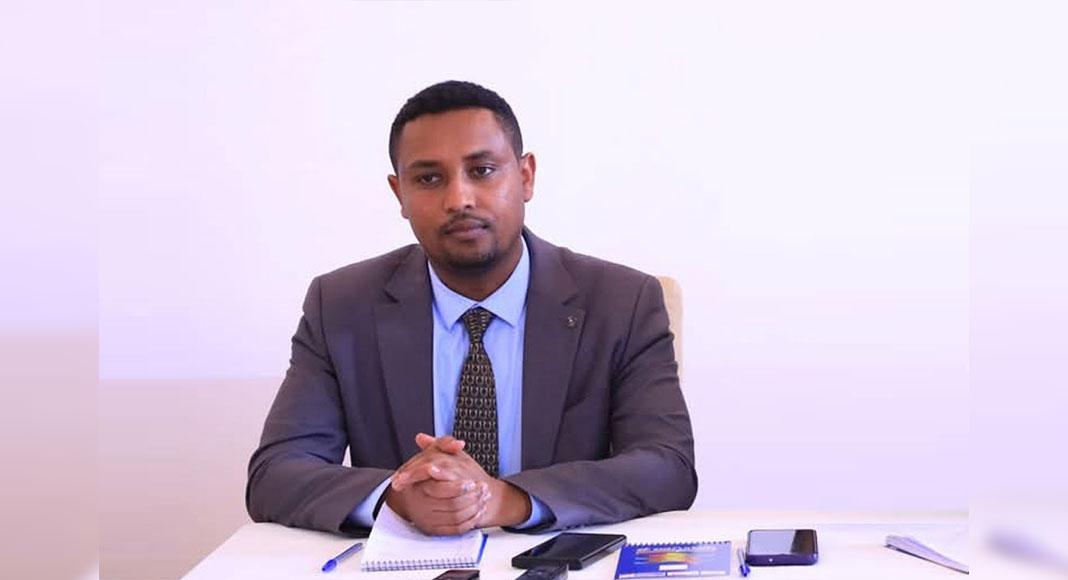Africa-Press – Ethiopia. April 21, 2025 3 minutes read HoPR Speaker Tagesse Chafo approving the amendment on Thursday. Photo: HoPR
Addis Abeba– The House of Peoples’ Representatives on Thursday 17 April approved an amendment to Ethiopia’s Mass Media Proclamation, granting the Prime Minister the authority to nominate the Director General of the Ethiopian Media Authority (EMA), a role that was previously reserved for the House.
The amendment, which revises Proclamation No. 1238/2021, had been under review by the Standing Committee on Democracy Affairs since its referral by the House on 29 October 2024.
The approved amendment repeals Article 8(2) of the proclamation, which previously stated that the Director General of the EMA, Ethiopia’s media regulatory body, shall be “appointed by the House of Peoples’ Representatives.” Under the revised law, the Director General will instead be nominated by the Prime Minister and appointed by the House.
It also repeals Articles 9(1) and 9(2), which required that board members be appointed “in an open and transparent manner” and outlined steps to ensure public participation, including giving the public an opportunity “to nominate and share their opinions of candidates,” and to “publish the selection process of candidates and a shortlist via media and other electronic means,” while ensuring “fair representation of Ethiopian diversity.”
Additionally, Article 11(6), which stipulated that a board member shall not be “a member or employee of a political party,” has been removed.
The amendment further repeals Article 9(5)(a), which had required the board to include two members each from civil society organizations, media, and “other institutions that have relevance to the media sector.” The new provision broadly states that the board shall be composed of “representatives from different bodies relevant to the media,” without specifying representation from particular sectors.
The amendments also transfer the media licensing and regulatory powers—including the authority to refuse license registration or to renew, suspend, revoke, warn, fine, and terminate a program—from the board to the Authority.
EMA authorities believe the proposed amendment represents a critical restructuring of the Authority’s governance, focusing on addressing long-standing bureaucratic inefficiencies and clarifying institutional roles. They also argue that while the EMA remains under the oversight of the Parliament, the amendment pragmatically adjusts the governance model in line with its statutory status and operational realities.
However, the amendment had faced significant opposition from journalists, media organizations, and civil society groups in Ethiopia and abroad.
In November 2024, a coalition of 14 media association and civil society organizations raised concerns over the proposed changes, warning that the amendment would place the EMA “under the influence of the executive.”
The coalition, including the Ethiopian Mass Media Professionals Association (EMMA), Ethiopian Media Women Association (EMWA), Ethiopian Human Rights Council (EHRCO), and the Center for Advancement of Rights and Democracy (CARD), criticized the draft for being introduced “without an independent study” and “adequate stakeholder discussions.”
The International Press Institute (IPI) also condemned the amendment, warning of the risks it posed to media freedom. IPI urged lawmakers to “reject the proposed amendments due to measures that weaken the independence of the media regulator.”
“An independent regulatory body is indispensable to press freedom. Governments should therefore ensure the independence of media regulatory bodies, in line with their commitments to safeguard freedom of expression and media freedom as guaranteed under Article 19 of the International Covenant on Civil and Political Rights and Article 9 of the African Charter on Human and Peoples’ Rights,” said Dr. Marystella Simiyu, IPI’s Africa Senior Legal Advocacy Officer, at the time.
The amendment to the media law also comes amid growing concern over what observers describe as an unprecedented deterioration of press freedom in Ethiopia.
In its 2024 Global Press Freedom Index, Reporters Without Borders (RSF) ranked Ethiopia 141st out of 180 countries—dropping ten places from 2023. RSF said that “devastated by inter-ethnic conflict and civil war, most of the recent gains in press freedom have been reversed,” adding that the conflict in Amhara has renewed journalists’ fear of reprisals.
The Committee to Protect Journalists (CPJ) also ranked Ethiopia among the worst jailers of journalists in sub-Saharan Africa, placing it third after Eritrea and Egypt. In its 2024 prison census, CPJ recorded six journalists detained in Ethiopia, five of whom are facing “terrorism” charges. The organization noted that authorities often use “vague charges or convictions for terrorism or extremism” to imprison journalists.
According to the Journalists’ Safety Assessment Report by International Media Support (IMS), press freedom has been “increasingly threatened,” with journalists facing “intimidation, detention, and harassment.” The report noted that at least 43 journalists in Ethiopia have been arrested, imprisoned, or kidnapped in 2024. AS
For More News And Analysis About Ethiopia Follow Africa-Press






